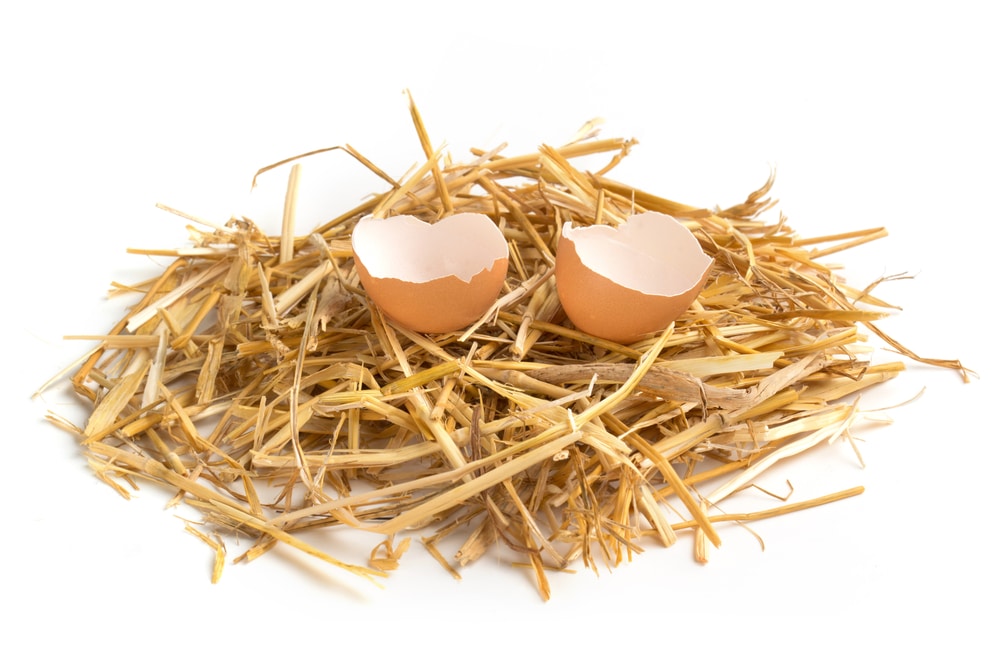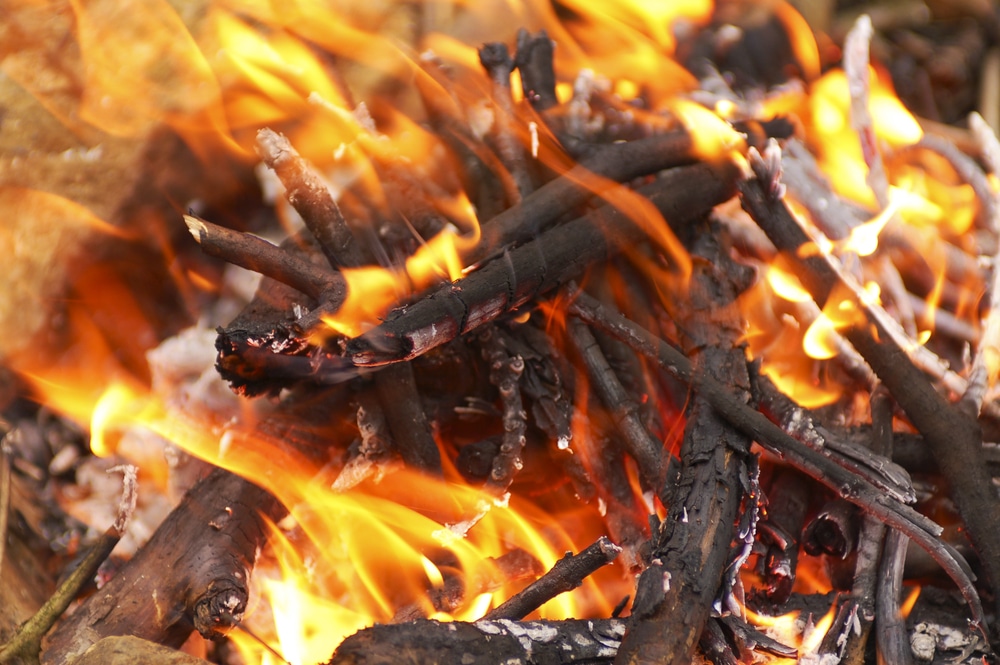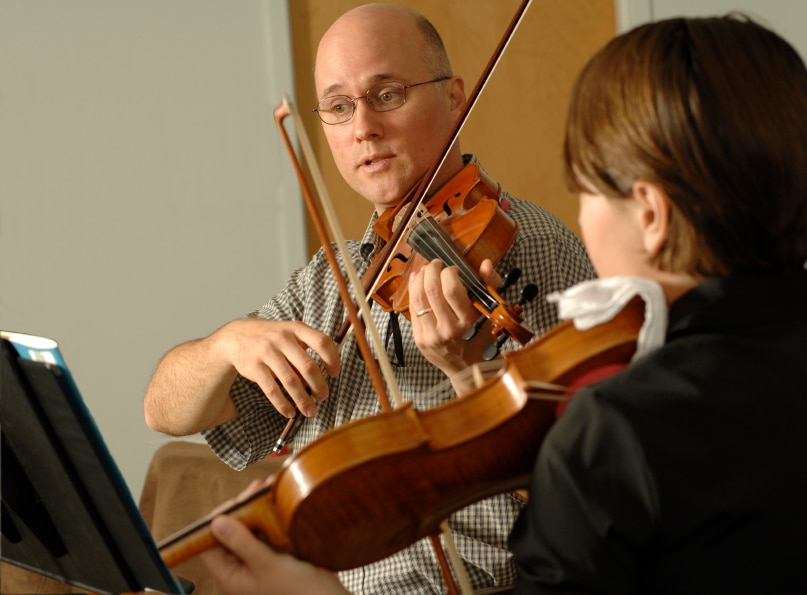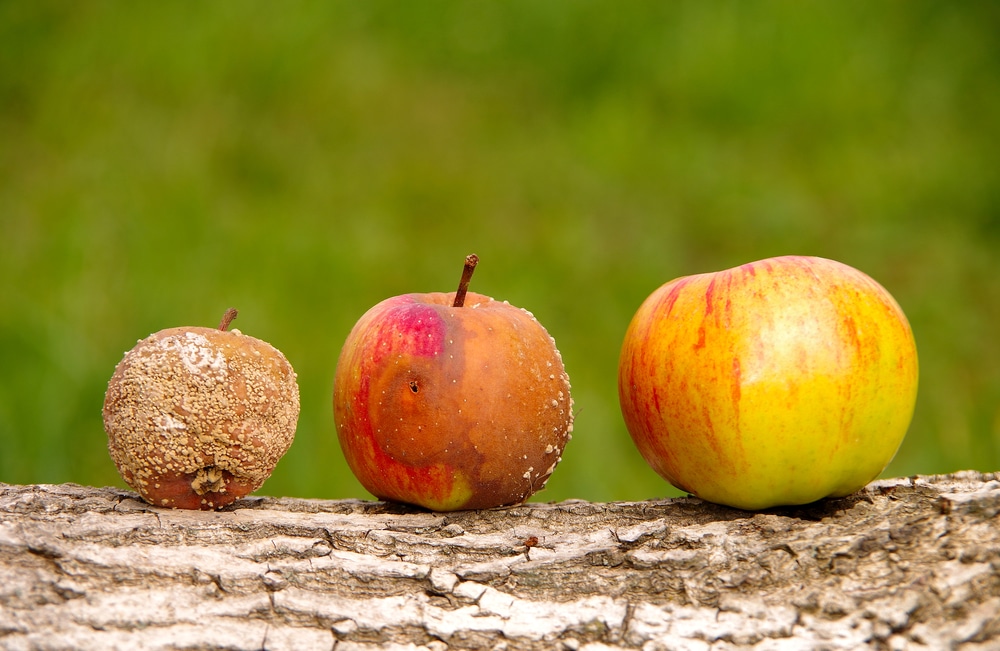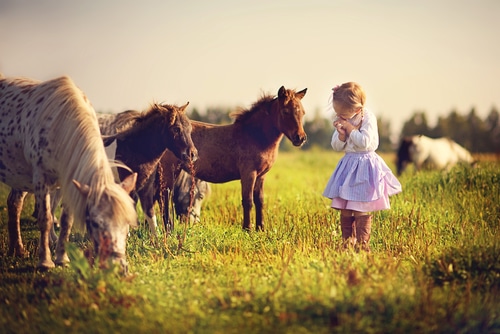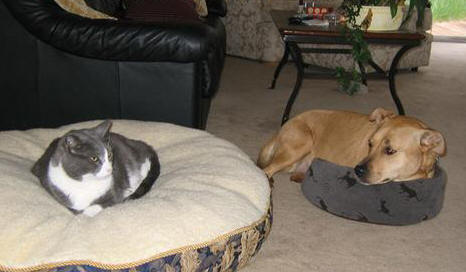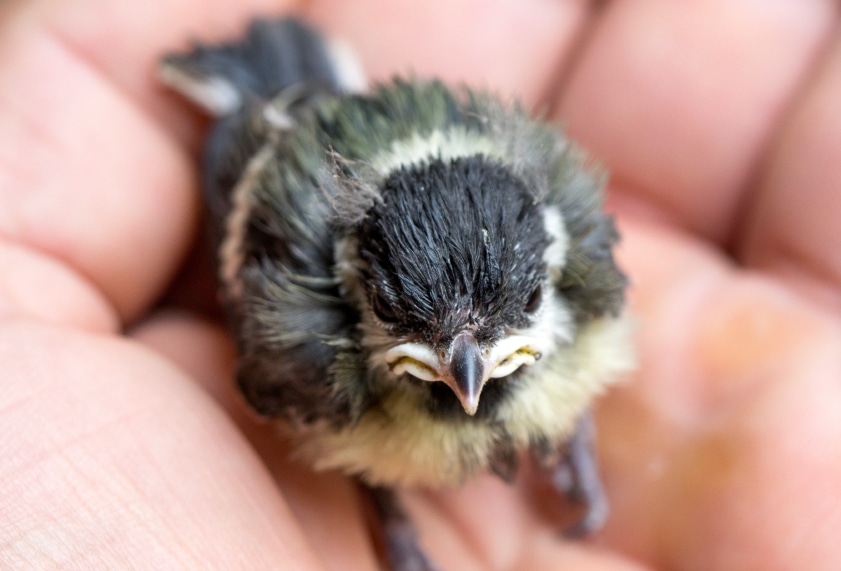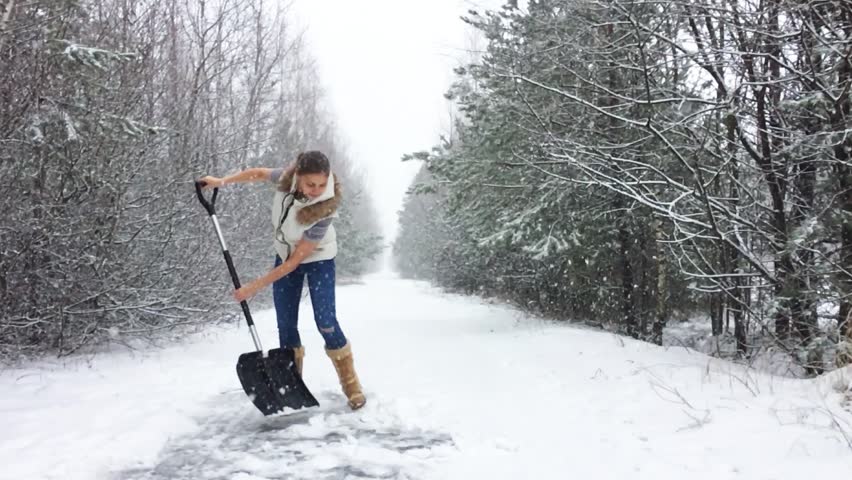
35 Inspiring German Proverbs and Quotes for German Learners (with Pronunciation)
Perhaps you’re a student of German who’s rock solid in German greetings and common German phrases.
Learning German proverbs can inspire you to take that final step toward achieving fluency. Even beginning learners can add some to their repertoire!
In this article, we will equip you with a whole treasure trove of proverbs that you can use in everyday conversations.
Contents
- 1. Aller Anfang ist schwer.
- 2. Des Teufels liebstes Möbelstück ist die lange Bank.
- 3. Wer rastet, der rostet.
- 4. Anfangen ist leicht, Beharren eine Kunst.
- 5. Aus Schaden wird man klug.
- 6. Das Billige ist immer das Teuerste.
- 7. Du siehst den Wald vor lauter Bäumen nicht.
- 8. Erst denken, dann handeln.
- 9. Eile mit Weile.
- 10. Kümmere Dich nicht um ungelegte Eier.
- 11. Krummes Holz gibt auch gerades Feuer.
- 12. Man muss die Dinge nehmen, wie sie kommen.
- 13. Morgenstund hat Gold im Mund.
- 14. Selbst ist der Mann. / Selbst ist die Frau.
- 15. Taten sagen mehr als Worte.
- 16. Übung macht den Meister.
- 17. Wer zwei Hasen auf einmal jagt bekommt keinen.
- 18. Wer A sagt, muss auch B sagen.
- 19. Wenn der Reiter nichts taugt, ist das Pferd schuld.
- 20. Der Hunger kommt beim Essen.
- 21. Dienst ist Dienst und Schnaps ist Schnaps.
- 22. Bald reif hält nicht steif.
- 23. Nur die Harten kommen in den Garten.
- 24. Alles hat ein Ende, nur die Wurst hat zwei.
- 25. Kleinvieh macht auch Mist
- 26. Das Leben ist kein Ponyhof
- 27. Kinder und Betrunkene sagen immer die Wahrheit
- 28. Wenn man dem Teufel den kleinen Finger gibt, so nimmt er die ganze Hand
- 29. Klappe zu, Affe tot
- 30. Was ich nicht weiß, macht mich nicht heiß
- 31. Was Hänschen nicht lernt, lernt Hans nimmermehr
- 32. Stochere nicht im Bienenstock
- 33. Wo sich die Füchse gute Nacht sagen
- 34. Besser ein Spatz in der Hand, als eine Taube auf dem Dach
- 35. Arbeit ist die beste Jacke
Download: This blog post is available as a convenient and portable PDF that you can take anywhere. Click here to get a copy. (Download)
1. Aller Anfang ist schwer.
Literal translation: “All beginnings are hard.”
No matter what you are undertaking in life—learning a language, embarking on a new career or starting a project from scratch—you will suck at it at first.
That’s part of the natural order and the way it should be. Don’t worry too much and just keep at it until you get it right.
2. Des Teufels liebstes Möbelstück ist die lange Bank.
Literal translation: “The devil’s favorite piece of furniture is the long bench.”
In German, putting something on the “long bench” means putting it off (etwas auf die lange Bank schieben – another very good addition to your German slang phrases).
Seems like Germans knew about procrastination long before the word was on everyone’s lips. What are you putting on the “long bench” that you could take care of right now? Don’t let the devil win.
3. Wer rastet, der rostet.
Literal translation: “He who rests grows rusty.”
This saying states that in order to improve your skills, you have to continuously work on them. It also warns that if you want to achieve anything, the most important thing is to take action.
Too many undertakings never get accomplished because of a lack of follow-through—so “get off your behind” already!
4. Anfangen ist leicht, Beharren eine Kunst.
Literal translation: “Starting is easy, persistence is an art.”
Starting something is much easier than seeing it through to the end. Haven’t we all had the experience of being full of enthusiasm at the beginning of a new venture only to have it fizzle out as time progressed?
Keeping up your motivation is an art form in itself, and one that needs to be cultivated.
5. Aus Schaden wird man klug.
Literal translation: “Failure makes smart.”
Many of us live in cultures that are deeply averse to failure. Nobody likes to screw up or fall on their face, but failure is actually a necessary part of learning.
Without making mistakes, you will never understand how to do things properly. To quote Samuel Beckett: “Ever tried. Ever failed. No matter. Try again, fail again, fail better.”
6. Das Billige ist immer das Teuerste.
Literal translation: “The cheapest is always the most expensive.”
This saying is a reminder to invest into quality. While the first impulse is often to go for the cheapest option, it’s usually worth it to spend a little more.
Whether on study material, tutors, or services, spending a little more for higher quality almost always pays off in the long run.
7. Du siehst den Wald vor lauter Bäumen nicht.
Literal translation: “You don’t see the forest for all the trees.”
In life, it is important to see the big picture. If we only concentrate on the latest wins or failures instead of seeing our lives as a whole, we are vulnerable to fate’s whims and get frustrated easily.
So don’t give up on German just because you had a bad vocabulary day. You can pick it up again tomorrow.
8. Erst denken, dann handeln.
Literal translation: “First think, then act.”
Although taking action is important, it is of equal importance to take the right action. Determining which one that is requires some deliberate thinking.
This proverb reminds us to set the right priorities and make decisions about what we want instead of blindly rushing into battle.
9. Eile mit Weile.
Literal translation: “Make haste with leisure.”
While it is important to work hard toward your goals and not be idle (Wer rastet, der rostet, remember?), you also have to make time to smell the proverbial roses along the way.
If we are too focused on the outcome and the end result, it is easy to miss out on all the fun getting there.
10. Kümmere Dich nicht um ungelegte Eier.
Literal translation: “Don’t worry about eggs that haven’t been laid yet.”
This one is a little bit like “don’t count your chickens before they hatch.”
While the English version asks us not to rely on means which we do not possess at this time, the German equivalent expresses the futility of worrying about things that haven’t come to pass yet and never might. That energy that can be spent much more productively.
11. Krummes Holz gibt auch gerades Feuer.
Literal translation: “Crooked logs also make straight fires.”
The perfect is the enemy of the good. A lot of people wait for the elusive “perfect moment” when the stars align and everything falls into place.
But life doesn’t work like that. This saying tells us to work with what we have available, not what we would like to have. To quote Theodore Roosevelt: “Do what you can, with what you have, where you are.”
12. Man muss die Dinge nehmen, wie sie kommen.
Literal translation: “You have to take things the way they come.”
In the same line of thought, life will seldom play out exactly the way we plan. It’s important to cultivate an adaptive mindset and deal with your current surroundings and conditions instead of wishing for things to be different.
So take life as it is, not as it should be.
13. Morgenstund hat Gold im Mund.
Literal translation: “The morning hour has gold in its mouth.”
This might be the most weird-sounding translation on the list (which German is prone to—just look at this list of German vocabulary with surprising meanings).
It is one of the ways Germans stress the importance of getting up early to get a head start on the day. Many inventors and creators of our time have been early risers who have used the first hours of the day as their most productive period. Highly recommended.
14. Selbst ist der Mann. / Selbst ist die Frau.
Literal translation: “Yourself is the man./Yourself is the woman.”
This saying is hard to translate literally. Its English equivalent is “Self do, self have.” Oftentimes we will use waiting for others as an excuse to not take action.
The proverb says that if you want something done, you have to do it yourself. While the original is the male version, Selbst ist die Frau is also widely used today.
15. Taten sagen mehr als Worte.
Literal translation: “Actions say more than words.”
In German, actions don’t speak louder than words—they are just more verbose. Of course, the meaning of this is to talk less and do more.
A lot of people want to do great things and like to talk about their plans but lack follow-through. Let your actions speak instead of your voice.
16. Übung macht den Meister.
Literal translation: “Practice is what makes a master.”
Mastery is hard to attain. It takes continuous honing of your skills to get really good at something. Be prepared to put in the time!
Whether it’s business savvy, physical skills or language proficiency, there are no shortcuts.
17. Wer zwei Hasen auf einmal jagt bekommt keinen.
Literal translation: “He who chases two rabbits at once will catch none.”
This is the German way of telling you to stop multitasking. Be focused. Concentrate on one thing at a time and then move on to the next.
Well done, grasshopper. (By the way, does anybody else think words like these should really be spoken by a wise kung fu master?)
18. Wer A sagt, muss auch B sagen.
Literal translation: “He who says A also has to say B.”
No, this is not the slowest way to learn the alphabet. Instead, it means that if you commit to something, you should commit to it all the way. Don’t half-ass things or cherry pick.
The saying refers to people with the attitude of Wasch mir den Pelz aber mach mich nicht nass (wash my fur but don’t get me wet), meaning that they want something to happen but are unwilling to make the sacrifices required for it.
19. Wenn der Reiter nichts taugt, ist das Pferd schuld.
Literal translation: “If the rider is no good, it’s the horse’s fault.”
When we attempt something and fail, we sometimes want to shift the blame away from ourselves. It’s more comforting to imagine that external factors and circumstances caused the outcome.
The German proverb reminds us to take responsibility instead. Germans have many more funny expressions that involve animals, so check them out!
20. Der Hunger kommt beim Essen.
Literal translation: “Appetite emerges while eating.”
If motivation runs low, one of the hardest things to do is to get started. Yes, we want to learn German. Yes, we committed to this time for our studying session. But we just don’t feel like it.
Start by studying a little bit, even for just a minute. More often than not, you will find that after working for a while and easing into the process, it actually becomes fun and easier to continue.
21. Dienst ist Dienst und Schnaps ist Schnaps.
Literal translation: “Work is work and liquor is liquor.”
Even if we are doing work that we enjoy, it isn’t always all puppies and rainbows. Sometimes, it’s just work and you just have to get through it—but there’s light at the end of the tunnel.
It is also a reminder to schedule periods of recovery. Just don’t overdo it with the Schnapps or you won’t feel too recovered afterward.
22. Bald reif hält nicht steif.
Literal translation: “Quickly ripened doesn’t hold stiff.”
The best English equivalent, though, is “early ripe, early rotten.”
This expression is often applied to children, as it’s thought that someone with many talents early on in their childhood won’t hold onto them for long as they grow up.
23. Nur die Harten kommen in den Garten.
Literal translation: “Only the strong come into the garden.”
It basically means only the strongest survive—who knows what exactly is going on in the garden, but it seems you have to be tough to make it!
24. Alles hat ein Ende, nur die Wurst hat zwei.
Literal translation: “Everything has an end, only the sausage has two.”
Did you know that German has a lot of proverbs and sayings that revolve around sausages? It’s true! The Germans love a good wurst (sausage) so much that they can’t help but write proverbs about them.
This one is easy to understand as it’s quite literal—everything has an end, no matter how long something takes. However, that’s not the case for the good old sausage!
25. Kleinvieh macht auch Mist
Literal translation: “Small animals also produce dung.”
That might not paint such a pretty picture, but it does have a meaningful message behind it: small amounts always add up to something bigger.
So, don’t give up on your German studies, even if it feels like you’re inching along! As this piece of German wisdom indicates, it’s a good idea to keep working on something even if you only do it bit by bit.
26. Das Leben ist kein Ponyhof
Literal translation: “Life isn’t a pony farm.”
It basically means that you can’t live like a pony at a pony farm and have your every whim taken care of for you.
In other words, you can’t always get what you want!
27. Kinder und Betrunkene sagen immer die Wahrheit
Literal translation: “Children and drunks always tell the truth.”
In English we might say something similar: “children and fools tell the truth.”
This phrase can be used to describe certain groups of people who are much more likely to be open and honest about a situation, for better or for worse. Children are the worst at keeping secrets and drunks are often a little loose-tongued, while the rest of us know how to lie when we want to.
28. Wenn man dem Teufel den kleinen Finger gibt, so nimmt er die ganze Hand
Literal translation: “If you give the devil your little finger, he’ll take the whole hand.”
In English, we have the proverb “if you give an inch, they’ll take a mile.” Simply put, it means that people can take advantage of you if you let them.
29. Klappe zu, Affe tot
Literal translation: “Close the lid, the monkey is dead.”
The English version doesn’t have such dark connotations, thankfully. We’d simply say, “let’s end this” or even “end of story.” And no monkey gets hurt in the process!
30. Was ich nicht weiß, macht mich nicht heiß
Literal translation: “What I don’t know doesn’t make me hot.”
You can think about this one in terms of the English phrase “hot and bothered,” relating to frustration or being flustered. We’ve all heard people say “what you don’t know can’t hurt you,” which is how we’d usually translate this expression.
31. Was Hänschen nicht lernt, lernt Hans nimmermehr
Literal translation: “What little Hans doesn’t learn, adult Hans will never know.”
It’s basically our version of “you can’t teach an old dogs new tricks,” but with humans!
You should take particular note of the word Hänschen (little Hans) in this sentence. It’s in the diminutive form, which is often used for children’s names.
32. Stochere nicht im Bienenstock
Literal translation: “Don’t poke around in the beehive.”
This equates to another one of our dog-themed proverbs in English. We’d say, “let sleeping dogs lie.”
You don’t want to bother the bees or the sleeping dogs. Who knows what they’ll do if you disturb them!
33. Wo sich die Füchse gute Nacht sagen
Literal translation: “Where the foxes say good night.”
The British idiom for a highly remote place, “the back of beyond,” would be an equivalent for this quote. Seen any foxes out there lately?
34. Besser ein Spatz in der Hand, als eine Taube auf dem Dach
Literal translation: “A sparrow in the hand is better than a pigeon on the roof.”
You’ll have certainly heard the English proverb, “a bird in the hand is worth two in the bush.” The Germans just specify which birds they’re talking about in their quote.
35. Arbeit ist die beste Jacke
Literal translation: “Work is the best jacket.”
The English version of the wise saying, “the best way to warm yourself up is by doing something useful.”
This list of proverbs should help prepare you to hear some unusual phrases in everyday German so you’ll know when not to take a sentence literally. It’s also a good starting point for anyone who wants to learn more phrases to use at parties or memorize romantic phrases to impress a German-speaking crush.
If you want to review proverbs and other interesting sayings, use an online dictionary like WordReference. Sayings can differ by dialect and change over time, so you can get some useful info from German speakers in WordReference’s comment sections.
If you want to understand these proverbs more deeply, you can seek out examples of them in German videos and other media. This will help give you a sense of how native speakers use proverbs and various turns of phrases in their casual speech.
One resource for such content is FluentU.
FluentU takes authentic videos—like music videos, movie trailers, news and inspiring talks—and turns them into personalized language learning lessons.
You can try FluentU for free for 2 weeks. Check out the website or download the iOS app or Android app.
P.S. Click here to take advantage of our current sale! (Expires at the end of this month.)
The videos all have interactive subtitles that let you read along in German (or English) and look up words and phrases for contextual translations and usage examples.
With all of these insightful saying and resources to even find more, you’re well on your way to impressing native German speakers with your knowledge.
More importantly, you can avoid being confused by sayings that sound nonsensical if you take them literally.
Download: This blog post is available as a convenient and portable PDF that you can take anywhere. Click here to get a copy. (Download)
And One More Thing...
Want to know the key to learning German effectively?
It's using the right content and tools, like FluentU has to offer! Browse hundreds of videos, take endless quizzes and master the German language faster than you've ever imagine!
Watching a fun video, but having trouble understanding it? FluentU brings native videos within reach with interactive subtitles.
You can tap on any word to look it up instantly. Every definition has examples that have been written to help you understand how the word is used. If you see an interesting word you don't know, you can add it to a vocabulary list.
And FluentU isn't just for watching videos. It's a complete platform for learning. It's designed to effectively teach you all the vocabulary from any video. Swipe left or right to see more examples of the word you're on.
The best part is that FluentU keeps track of the vocabulary that you're learning, and gives you extra practice with difficult words. It'll even remind you when it’s time to review what you’ve learned.
Start using the FluentU website on your computer or tablet or, better yet, download the FluentU app from the iTunes or Google Play store. Click here to take advantage of our current sale! (Expires at the end of this month.)









